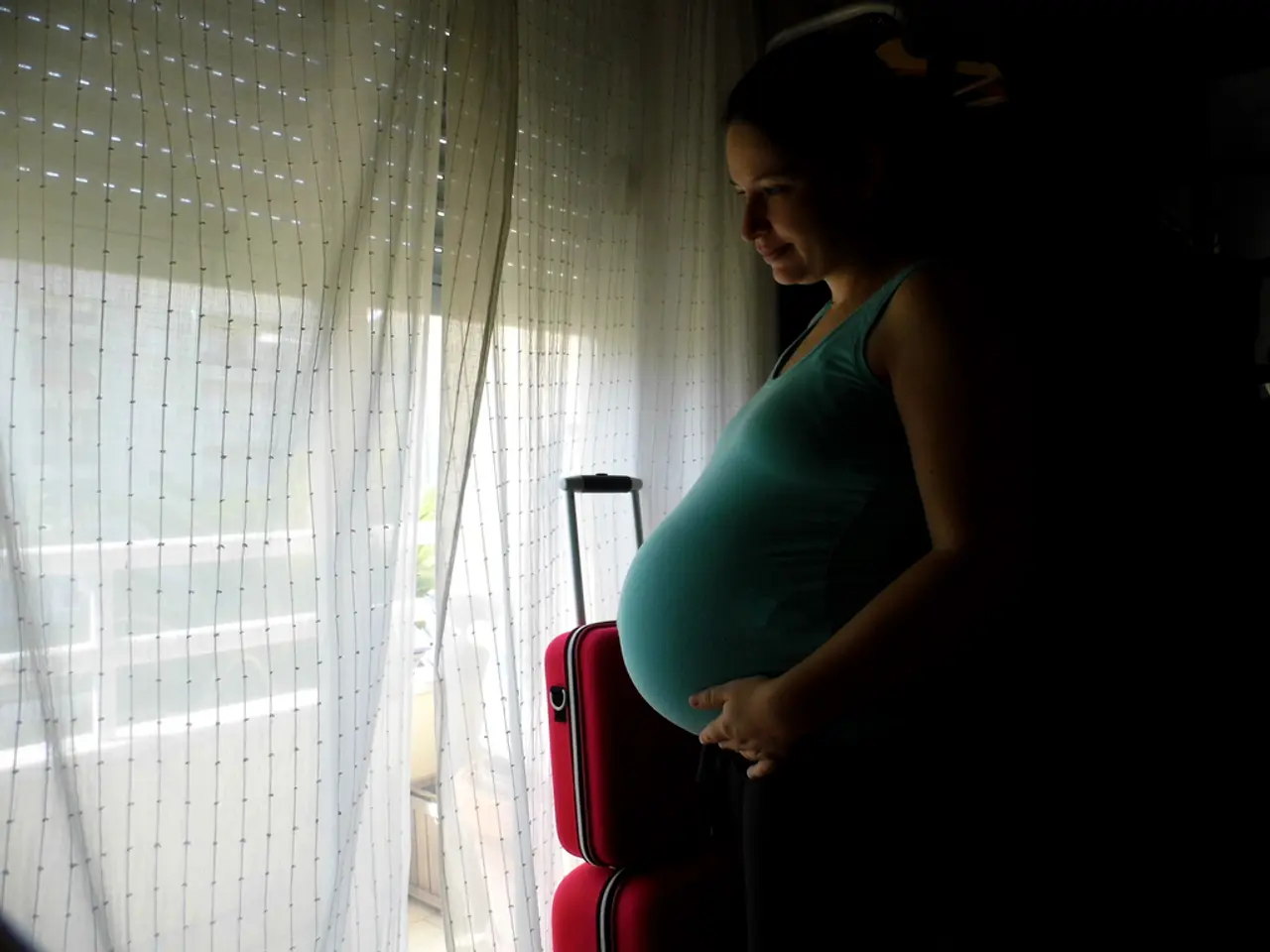Managing Suicidal Ideations During Pregnancy: A Guide
In the complex journey of pregnancy, mental health often takes a backseat to physical concerns. However, a significant and growing concern is the prevalence of suicidal ideation among pregnant women, particularly in vulnerable populations.
Studies indicate that between 4.6% and 23% of low-income pregnant women report suicidal ideation, with those having a history of depression being at a notably higher risk - up to 13 times more likely [1]. This troubling trend has been on the rise, with longitudinal data showing that the prevalence of suicidal ideation increased from 0.1% in 2006 to 0.5% in 2017 among insured childbearing women in the US, with intentional self-harm also rising in that period [5].
The causes of suicidal ideation during pregnancy are not singular, but rather the result of a complex interplay of emotional, social, and psychological stressors. These can include past trauma, history of mood disorders, socioeconomic factors, lack of support or access to care, and emotional pressures related to fears about parenthood, stigma, and shame about struggles during pregnancy [1][2][4].
Certain groups are at higher risk, such as Black women and those with prior mental health diagnoses [1]. It's crucial to address these issues proactively, as suicidality, including suicidal thoughts and intentional self-harm, is recognised as a significant risk during pregnancy and postpartum periods and is a leading cause of maternal mortality in some countries, such as the United States [1][5].
Regular screening for mental health conditions, including depression, anxiety, and suicidal ideation, is recommended throughout pregnancy and postpartum visits [2]. Immediate risk assessment protocols should be activated when suicidal thoughts or behaviors are identified, with care tailored to the individual's cultural context and values [2]. A multidisciplinary care approach, ensuring coordination between obstetric, mental health, and social services, is advised for comprehensive support [2].
Treatment options include psychotherapy, pharmacotherapy when appropriate, social support interventions, and early and sustained mental health follow-up to prevent escalation [2][1]. Cognitive Behavioral Therapy (CBT) and Interpersonal Therapy (IPT) are therapeutic techniques used for perinatal mental health [6].
If you're in immediate danger, call or text 988 for emergency help. Support groups, both online and in-person, can offer a safe space to share feelings and experiences. Creating a self-care routine, including mindfulness practices, exercise, and healthy eating, can help manage stress during pregnancy.
Effective ways to take care of yourself during pregnancy also include getting enough sleep, engaging in activities you enjoy, and being in nature. Online therapy is available for those experiencing suicidal thoughts during pregnancy.
If you're having thoughts of suicide when pregnant, prioritize safety first by contacting a mental health crisis line, your OB-GYN, emergency services, or Postpartum Support International. Talking to someone you trust, like a partner, friend, family member, or healthcare professional, can make a powerful difference in your mental well-being while pregnant.
References:
[1] American Psychological Association. (2016). Suicide during pregnancy and postpartum. Retrieved from https://www.apa.org/pi/women/programs/pregnancy/suicide
[2] American College of Obstetricians and Gynecologists. (2020). Mental health care during pregnancy and the postpartum period. Retrieved from https://www.acog.org/clinical/clinical-guidance/committee-opinion/articles/2020/03/mental-health-care-during-pregnancy-and-the-postpartum-period
[3] American Foundation for Suicide Prevention. (2021). Suicide during pregnancy and postpartum. Retrieved from https://afsp.org/about-suicide/risk-factors/suicide-during-pregnancy-and-postpartum/
[4] National Institute of Mental Health. (2020). Perinatal and postpartum depression. Retrieved from https://www.nimh.nih.gov/health/topics/perinatal-and-postpartum-depression/index.shtml
[5] Hwang, S. W., & Kahn, J. A. (2019). Suicide in pregnancy and the postpartum period. Retrieved from https://www.ncbi.nlm.nih.gov/pmc/articles/PMC6650230/
[6] Postpartum Support International. (2021). Perinatal mental health treatment. Retrieved from https://postpartum.net/learn/perinatal-mental-health-treatment/
- In the complicated journey of pregnancy, mental health, particularly suicidal ideation among vulnerable populations, requires more attention.
- Studies show that a history of depression increases the risk of suicidal ideation among low-income pregnant women, with some being up to 13 times more likely.
- Mental health screening for depression, anxiety, and suicidal ideation is crucial during both pregnancy and postpartum visits, with immediate risk assessment if suicidal thoughts are identified.
- A multidisciplinary approach, involving coordination between obstetric, mental health, and social services, provides comprehensive support for at-risk individuals.
- Therapies like Cognitive Behavioral Therapy (CBT) and Interpersonal Therapy (IPT) can be beneficial for women suffering from perinatal mental health issues.
- Online therapy is available for pregnant women experiencing suicidal thoughts, and it's always important to reach out to mental health crisis lines, healthcare professionals, or support groups if needed.




